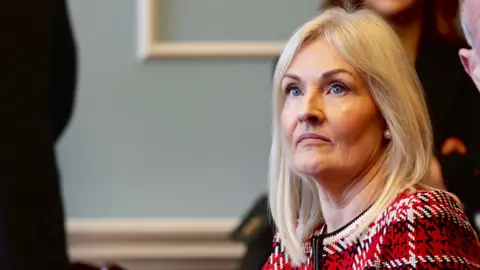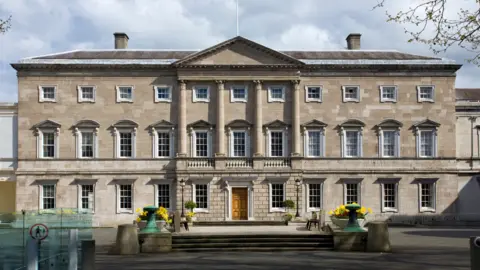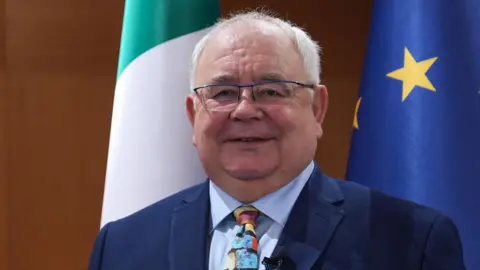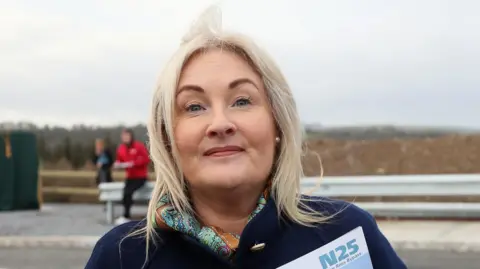Irish parliament's first female speaker 'humbled' to serve
 PA Media
PA MediaIndependent Wexford TD Verona Murphy is the newly-elected Ceann Comhairle (speaker) of Dáil Éireann, the first woman to ever hold the role.
In her speech on Wednesday, at the first sitting of the Dáil since November's general election said she was "humbled, honoured and privileged" to be elected by her fellow TDs (members of the Irish parliament).
Fianna Fáil's John McGuinness and Seán Ó Fearghaíl as well as Aengus Ó Snodaigh from Sinn Féin also ran for the position.
It is still not clear which parties will make up the new government, after the election produce no outright winner.
Voting to elect the 34th Dáil took place on 29 November, with Fianna Fáil, Sinn Féin and Fine Gael winning the most seats.
Fine Gael and Fianna Fáil are in negotiations with the Regional Independent group to become the third leg of the next government.
The group asked both parties to support the nomination of Murphy.
Fianna Fáil announced that they were backing their leader's endorsement of the candidacy of Murphy for Ceann Comhairle on Tuesday.
The Tánaiste (deputy prime minister) Micheál Martin backed her for the position over party candidate and outgoing Ceann Comhairle Seán Ó Fearghaíl.
Fine Gael leader Simon Harris also recommended the party's TDs support Murphy for the position, Irish broadcaster RTÉ reported.
What happened today?
 Getty Images
Getty ImagesMr Harris visited Aras an Uachtarain (the official residence of President Michael D Higgins) on Wednesday morning, where he submitted his resignation, although he will stay on in the role until a new taoiseach is appointed.
Proceedings in the Dáil concluded at about 18:30 local time.
At the beginning of the day, the Clerk of the Dáil, Peter Finnegan, read out the names of all 174 TDs.
TDs then elected a Ceann Comhairle by secret ballot.
Sinn Féin also put forward a motion to nominate its party leader Mary Lou McDonald as taoiseach, but it was rejected by 110 votes to 44.
Fianna Fáil leader Micheál Martin, whose party won the most seats, criticised the Sinn Fein motion calling it "grandstanding" and an "empty gesture".
"We all know that no-one has the support yet to be elected as taoiseach today. There's no new government available yet".
 Getty Images
Getty ImagesThe outgoing speaker, Fianna Fáil's Ó Fearghaíl, told RTÉ that the role should not form part of government formation negotiations.
Speaking on RTÉ's Radio 1, Ó Fearghaíl said Martin told him that he saw the election of Murphy as being critical to the formation of a stable government.
 PA Media
PA MediaSpeaking to TDs after her election, Murphy said she "undertook to be fair, impartial, to be even-handed and even tempered".
Her message to the public was that she hoped to be "a reforming Ceann Comhairle, and make the operations of the house more relevant in terms of the way it affects you day to day".
Murphy also committed to improve her grasp of the Irish language "to a level that is commensurate with the office I now hold".
